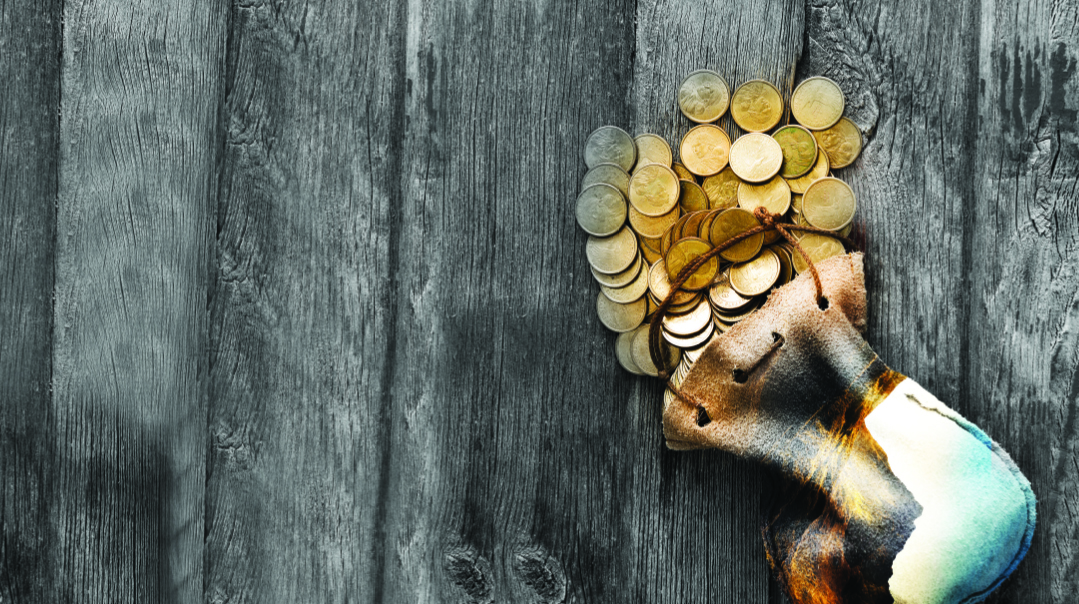Silent and Strong


Photo: Shutterstock
The Simchas Torah afternoon drags on endlessly. Crumpled neon-colored candy wrappers litter every surface. Dazed children faces smudged with sticky sweat roam the shul while the women sit restlessly waiting for every man to be called up to the Torah.
We squash into the makeshift lounge area wedged on the old brown couch like sardines. I am lodged between the wall and a woman from the community. Her face turns to me attempting conversation in the confined space. “Do you you know want to have children?”
My heart stops. Am I hearing correctly? A woman I barely know asking such a sensitive question in the most un-private space? I want to run. But I am literally cornered. “Um yeah I do” I mumble.
Oblivious to my discomfort she babbles on eagerly “I just want to ask — has your husband been given Kol Hane’arim? Because I don’t know if you know it’s an amazing segulah for having children. There was this couple who was married for over eight years — they were not religious. People begged them for years to go to Kol Hane’arim but for some reason they didn’t want to. Finally I got a big rav to invite them and they had children.”
She jabbers unceasingly barely taking a breath recounting similar miracle stories with frantic zealousness. I too can barely breathe; I am drowning in shock and shame.
My biggest fear — becoming the object of pity and talk — has been actualized. I have been married for five years with no children. It’s not that we’re struggling with infertility which would be bad enough in itself but excusable. It’s so much worse so much more shameful. It’s our marriage that’s in shambles. It has been from the start.
My husband is not abusive nor mentally unwell. Neither am I. Though outwardly happy each day in my marriage is a torturous struggle. But I am not ready to give up. Emotional baggage from my tumultuous childhood with divorced parents strangles me; my struggles collide head-on with my husband’s internal challenges. We are hopelessly ill-equipped for developing trust and a healthy relationship.
Over and over I fantasize about ending things but I know that these issues are my own and need to be resolved before I can make any decisions.
But there was a silver lining...of sorts. During the early days of our marriage I was diagnosed with a condition which interfered with my chances of having children. It required a relatively simple treatment but after long and hard thought we decided — under the guidance of our rav — to decline treatment until our marriage stabilized.
Finally a few months ago we each reached a better place and decided we were ready to move forward. Now I am desperate to be normal to fit in and join the baby conversations. Friends who married around the time I did already have one or two children. I am overpoweringly envious of people with children and embarrassed of my childless state.
On this endless afternoon my well-meaning seatmate catapults me straight into this whirlpool of black that I try so hard to avoid.
Yes I know about Kol Hane’arim I scream silently. It’s not the reason I don’t have children. You have no idea. How can you assume things?
Mercifully, shul finally ends and I escape her clutches. I am shaking with humiliation. The gall of her assumptions, the knowledge that I am pitied, her complete insensitivity to my embarrassment — it’s all too much.
For days, I am livid. The conversation replays in my mind; her endless words and my endless indignity. Did she not realize how blas? she was? How could she do this? Doesn’t she know how she hurt me?
It’s too painful to contemplate, so I channel the feelings into something productive. Fortified with righteous indignation, I decide that something has to be done. I need to text her. She needs to know, I tell myself. She needs to learn to be sensitive. She could hurt other people.
The words sound sanctimonious. I could save so many people from similar humiliation, I justify my intentions. But with a blessed shred of conscience and self-awareness, I cannot hide from the fact that my true goal is to hurt her. I want her to feel a sliver of the pain I felt. I sit on my bed with my fingers itching to type out the words. Her number saved in my phone, I am desperate to strike back.
Somehow, with super-human strength, I hold back. Perhaps this is my tikkun, I ponder. I think of the stories of my childhood engraved in my subconscious: Tannaim who swallowed colossal embarrassments wordlessly, and their reward. When I see her over the weeks, it takes time for the raging anger to subside. But slowly, I forgive.
The year passes, and I approach the Yamim Noraim with jubilant heaviness. The weight of the final weeks of pregnancy means that I waddle to shul. By Yom Kippur, I can barely walk, so I sit through every tefillah.
My due date comes and goes, and I come and go. Shacharis, Mussaf, Minchah, repeat. I trudge to Yom Tov meals, squashing my cumbersome self into crowded succahs. I wade through the heat; I am impatient and aching and preoccupied as only one expecting their first child has the luxury of being.
We prepare for Shemini Atzeres, and I tell my husband with conviction: “It’s going to be on Simchas Torah.”
He nods at me with quizzical eyes; he is used to his crazy wife’s convictions by now. “How do you know?” he asks. But with hints of pain still lurking, I can’t tell him the reason. If I told him, even his rational self would believe me.
Simchas Torah morning comes; I sit and watch the men dancing elatedly with the Torah, spinning round and round the bimah over and over again, the boisterous singing, the children with their flags and the unrestrained joy. The full-bodied expression of love for Hashem and His Torah and the renewal that the day offers unexpectedly moves me to tears.
The day goes on, each man gets called up for his aliyah. I am acutely aware of every movement within me. But there are no signs of labor, and I am pleased that I have kept my predictions to myself.
As the sun makes it way toward the horizon, I sit and talk with my family. My back goes into an unfamiliar spasm, I gasp with pain. I say nothing, cherishing these final moments of these days of closeness with Hashem.
After Havdalah the pains increase. That night, we go to the hospital. After a grueling labor and an emergency c-section, my precious son is born in the early hours of Isru Chag.
It’s been four years since that shameful encounter. The memory is still vivid: the sticky heat, the ripped brown sofa with foam coming out, the paralysis I felt, but the gut-wrenching pain is gone. That lady and I, we became good friends. I never told her of that incident, but I forgave her. She didn’t know. She couldn’t know. And who knows, maybe that embarrassment was the reason for my blessings?
If I try hard enough, I can still feel the embarrassment of that moment. But I don’t need to because right now my heart is so full of gratitude and prayer and delight and struggle as I am raising my two incredible gifts from Hashem.
And every Simchas Torah, as I watch my two little boys under the tallis held by their incredible father, instead of shame, there is an unspeakable joy and overwhelming wonder. It is the joy of knowing that Hashem is in charge, that everything can change, and the wonder in the abundant blessings He bestows upon us.
(Originally featured in Family First, Issue 511)
Oops! We could not locate your form.













